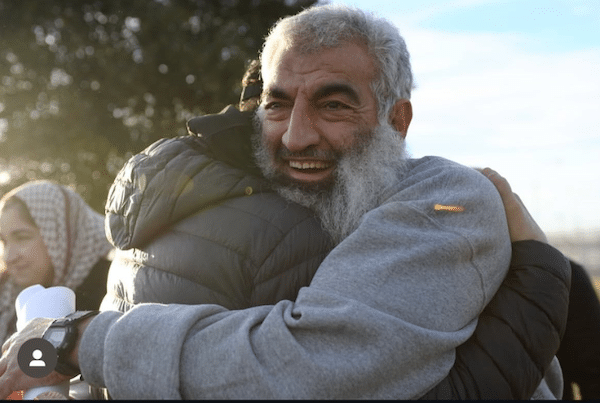This case has been widely highlighted as one of the consequences of the intense Islamophobia whipped up, largely in order to justify the U.S.’ ‘War on Terror’.
The Holy Land Foundation’s Mufid Abdulqader has been released to a halfway house after spending nearly two decades in a U.S. federal prison.
His case has been highlighted by human rights groups as an example of wrongful imprisonment, linked to a disproportionate and politicized targeting of Muslim charities.
The 64-year-old Mufid Abdulqader was born in 1960, in the town of Silwad which is located in the Ramallah District of the West Bank. At that time, the territory was under the control of Jordan, until the Israeli military illegally occupied it in June of 1967.
Abdulqader holds both Jordanian and American citizenship. He pursued his higher education in the United States, earning his Bachelor’s and Master’s Degrees in Civil Engineering from the University of Oklahoma.
He then worked as a department head in the Dallas Municipality in the state of Texas, in addition to being a visiting lecturer at a range of American universities.
However, Abdulqader is most well known for being one of what was dubbed the Holy Land Five, alongside Mohammad el-Mezain, Ghassan el-Aashi, Shukri Abu Baker, and Abdulrahman Odeh, who were all imprisoned over allegations that they had participated in indirectly aiding a terrorist organization; namely Hamas.
The Holy Land Foundation was the largest Muslim charity in the United States. Along with providing aid and relief in the U.S., they also ran significant programs in the Palestinian-occupied territories. Their largest efforts were focused in Ramallah, West Bank.
Although Albdulqader was recorded as having been one of the top fundraisers for the Holy Land Foundation, he never actually worked as an employee there. Yet, he was still sentenced to 20 years in federal prison.
In a post-9/11 world, the Bush administration was under pressure to act against Muslim groups operating inside the United States.
Muslims and Islamic civil society organizations were disproportionately targeted across the country, leading to rights violations in a climate where the majority of Americans were willing to sacrifice their own constitutional liberties at the altar of combating perceived Islamic fundamentalism.
Israel quickly sought to weaponize the tense environment to target Palestinians. Then Israeli Prime Minister, Ariel Sharon, had allegedly presented a document to the U.S. Bush administration that provided “proof” of the Holy Land Foundation’s links to funding Hamas.
As we would see in later years to come, these kinds of documents would also be presented to the U.S. government about the United Nations Relief and Works Agency (UNRWA) and various human rights groups based in the West Bank, which were shown to be baseless and lacking any evidence.
Human Rights Watch condemned the “dubious claims” and stated that they “echo those that the Israeli government has made against Palestinian human rights groups and advocates for decades”.
The leading international rights group also pointed out that faulty translations and a lack of evidence were used to unjustly target the Holy Land Five and shut it down:
The defendants in the Holy Land Foundation (HLF) case were never accused of directly funding terrorist organizations or terrorist attacks, nor were the Palestinian charities they funded accused of doing so. Nonetheless, they were prosecuted under U.S. ‘material support’ legislation on the notion that the social programs they financed help win the ‘hearts and minds’ of Palestinian people for Hamas.
An Israeli human rights advocate, Miko Peled, wrote a book on the topic entitled ‘Injustice: The Story of the Holy Land Foundation Five’, in which he detailed what amounted to kangaroo court convictions that appeared to have come down to political motivations.
In 2008, some 29 different counts were dropped against Mufid Abdulqader, leaving only three conspiracy counts left.
This case has been widely highlighted as one of the consequences of the intense Islamophobia whipped up, largely in order to justify the U.S.’ ‘War on Terror’, where Muslim individuals and organizations became punching bags and targets for political points scoring in the United States.

